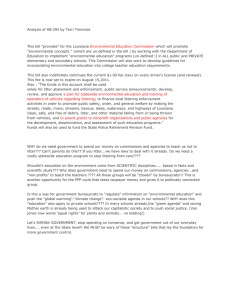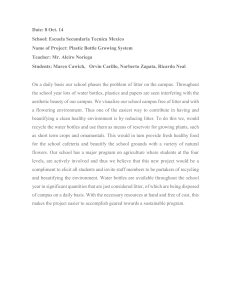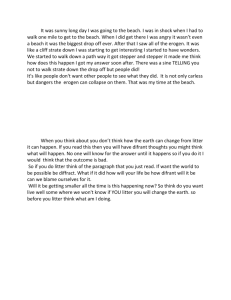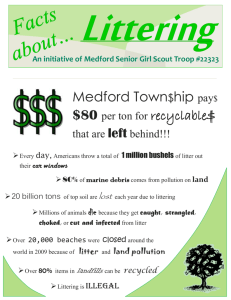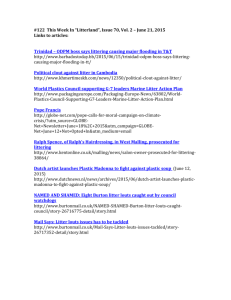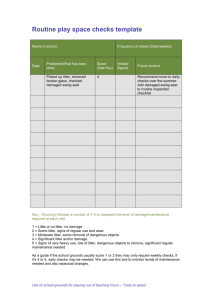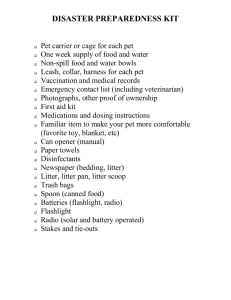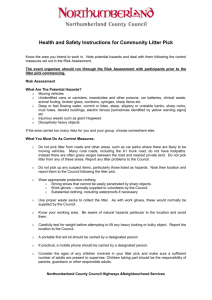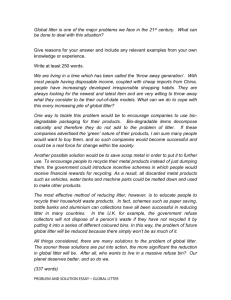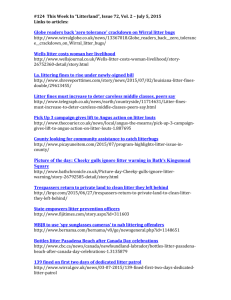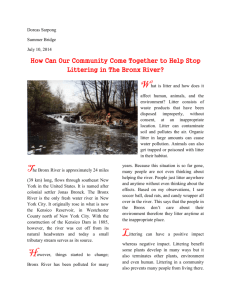MEDIA RELEASE For immediate release 08 January 2015
advertisement
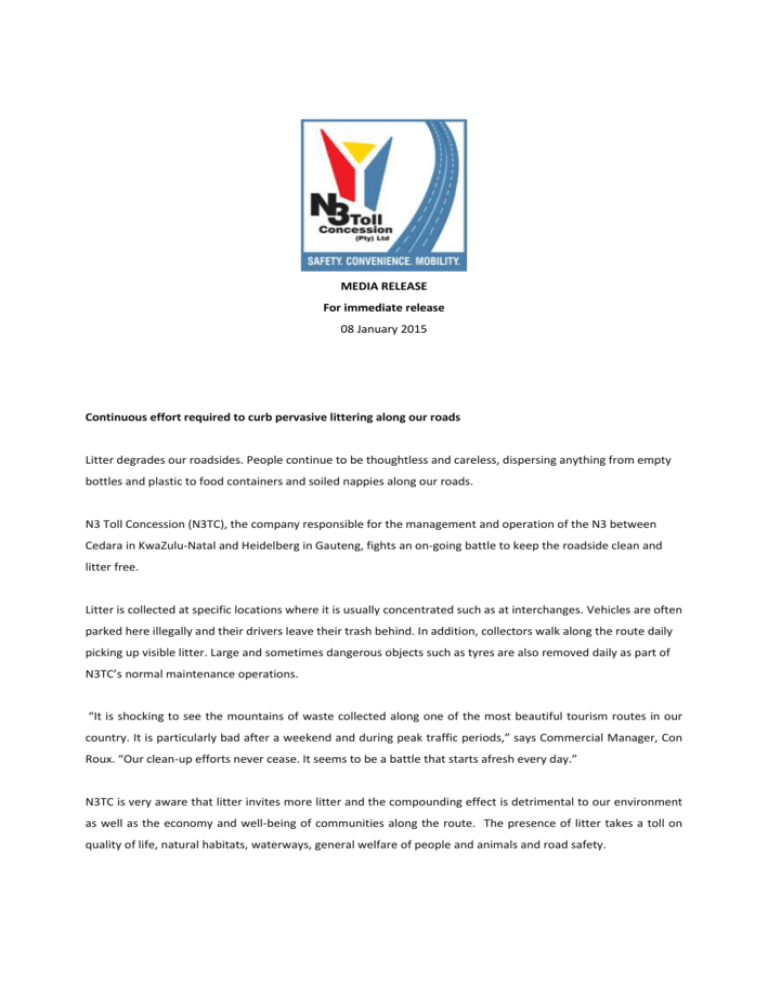
MEDIA RELEASE For immediate release 08 January 2015 Continuous effort required to curb pervasive littering along our roads Litter degrades our roadsides. People continue to be thoughtless and careless, dispersing anything from empty bottles and plastic to food containers and soiled nappies along our roads. N3 Toll Concession (N3TC), the company responsible for the management and operation of the N3 between Cedara in KwaZulu-Natal and Heidelberg in Gauteng, fights an on-going battle to keep the roadside clean and litter free. Litter is collected at specific locations where it is usually concentrated such as at interchanges. Vehicles are often parked here illegally and their drivers leave their trash behind. In addition, collectors walk along the route daily picking up visible litter. Large and sometimes dangerous objects such as tyres are also removed daily as part of N3TC’s normal maintenance operations. “It is shocking to see the mountains of waste collected along one of the most beautiful tourism routes in our country. It is particularly bad after a weekend and during peak traffic periods,” says Commercial Manager, Con Roux. “Our clean-up efforts never cease. It seems to be a battle that starts afresh every day.” N3TC is very aware that litter invites more litter and the compounding effect is detrimental to our environment as well as the economy and well-being of communities along the route. The presence of litter takes a toll on quality of life, natural habitats, waterways, general welfare of people and animals and road safety. “Our comprehensive litter control programme not only focuses on actual clean-up efforts, but we also do ongoing community and environmental education. Education is key to stop littering,” says Con Roux. “We believe a clean road is a safe road, fundamental to the creation of a law-abiding culture.” N3TC sorts all waste and recycles as much as possible. Around 4700 bags of litter are collected every month which do not include items that cannot be bagged such as metal, rubber, vehicle parts and dropped loads. One of the education and recycling programmes which N3T partners is the Singakwenza initiative. Singakwenza's Early Childhood Development Programme focuses on teaching children through play, utilising recyclable materials to ensure sustainable resources in economically disadvantaged communities of KwaZulu Natal. Bread and citrus bags are recycled to make balls and skipping ropes whilst ball catchers and spades are made from one and 2 liter milk bottles. Building blocks are created from egg boxes, toilet roll inners and yoghurt containers. “It is heart-warming to know that waste can be put to good use, but an even better contribution could be made to people and the environment, if every person takes the responsibility to sort their own waste and dispose of it in the correct manner,” says Roux …/ends Issued by: Anita Heyl Cell: 082 922 7354 Contact: Andy Visser Cell: 082 571 2313

